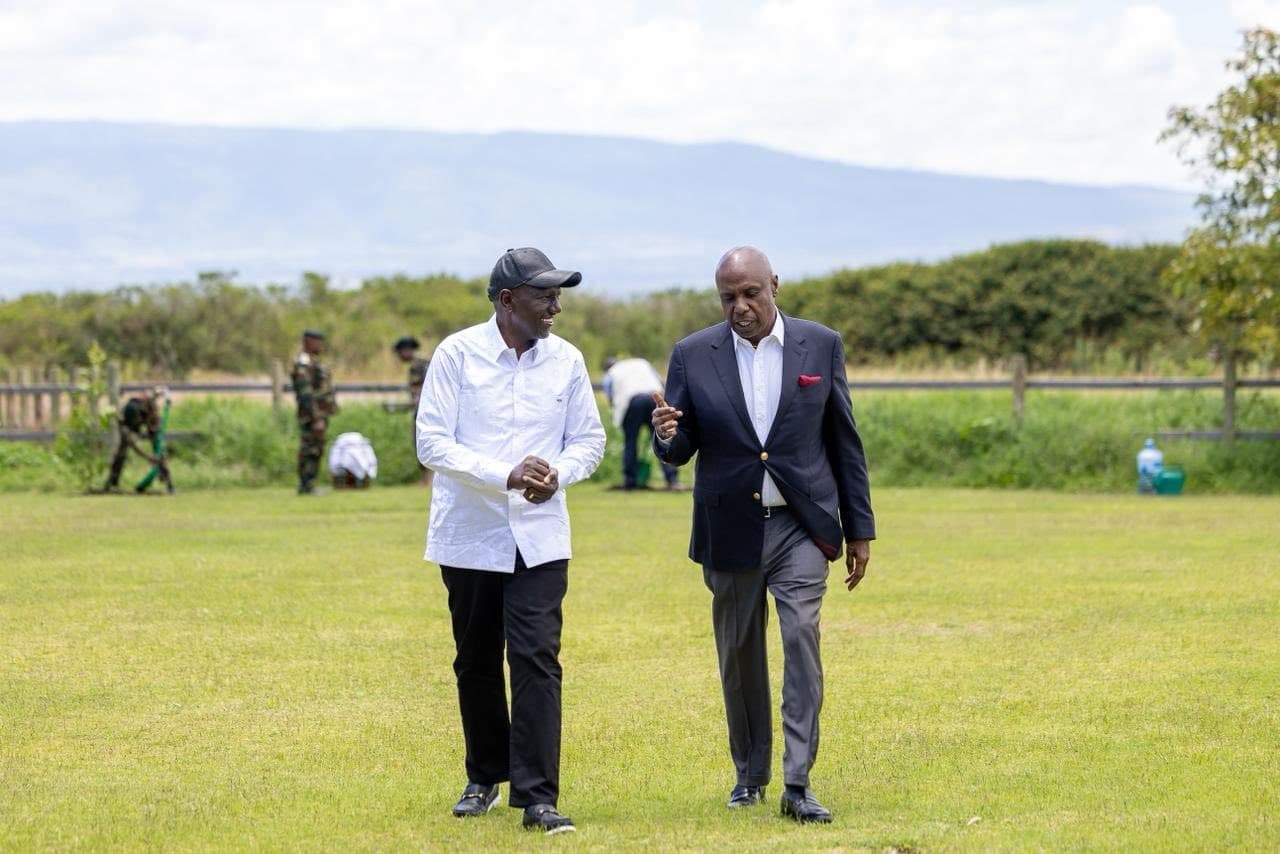We're loading the full news article for you. This includes the article content, images, author information, and related articles.
The Kenya African National Union (KANU) Youth Congress has publicly disavowed a recent pact between party chairman Gideon Moi and President William Ruto, citing a betrayal of core party principles and a lack of consultation.

The Kenya African National Union (KANU) Youth Congress has strongly rejected a political alliance between their party chairman, Gideon Moi, and President William Ruto. In a statement issued on Tuesday, October 14, 2025, the youth wing declared that the alleged KANU-UDA pact was made without their consultation and goes against the independence party's founding principles of accountability, transparency, human rights, and the rule of law.
The youth leaders, including National Chairperson Shanice Matara and Vice Secretary Lucy Atemo Mwangu, emphasised that their values do not align with what they termed the current administration's actions, specifically citing "consistent abductions, enforced disappearances, human rights violations, corruption, and total disregard of the rule of law."
KANU, formed on May 14, 1960, played a pivotal role in Kenya's struggle for independence and governed the nation for nearly 40 years after 1963 under Presidents Jomo Kenyatta and Daniel arap Moi. Gideon Moi, son of the late President Daniel arap Moi, currently chairs the party. The party has historically been a significant force in Kenyan politics, often forming alliances and experiencing internal shifts.
President Ruto and Gideon Moi have been long-standing political rivals, particularly in the Rift Valley region. However, a recent series of meetings, including one at State House, Nairobi, on Wednesday, October 8, 2025, and another at Moi's Kabarak residence on Friday, October 10, 2025, culminated in an announcement that KANU would join the broad-based government.
The KANU Youth Congress's statement underscored the party's commitment to constitutional governance. They asserted that no partnership or coalition agreement could legitimise a regime that disregards constitutional lines of governance and protection of the rule of law.
President Ruto, in announcing the alliance, stated his intention to unite the country and advance development in critical sectors such as education, healthcare, and infrastructure. He described KANU as "fundamental to the nation" and indicated that his outreach to Gideon Moi was part of a broader strategy that also includes engaging former President Uhuru Kenyatta and opposition leader Raila Odinga.
The KANU National Youth Congress, representing party members between 18 and 35 years old, explicitly stated their dissociation from the pact. Shanice Matara, the National Chairperson, highlighted that the youth wing was not consulted before or after the meetings between Moi and Ruto.
Gideon Moi, on his part, acknowledged the President's gesture and explained his decision to set aside past political differences for national unity and development. He also withdrew his candidature from the upcoming Baringo senatorial by-election in favour of the UDA candidate, a move seen as a gesture of goodwill.
The alliance between Gideon Moi and President Ruto is seen by some analysts as a strategic move to consolidate political power in the Rift Valley, securing Ruto's dominance within the Kalenjin heartland. It also aims to provide KANU with meaningful representation in government and honour the Moi family's legacy through development projects in Baringo.
However, the dissent from the KANU Youth Congress highlights potential internal divisions within the party, particularly concerning adherence to its founding ideologies. The youth wing's strong stance against perceived government shortcomings could impact KANU's grassroots support and future political direction.
The full extent of the agreement between Gideon Moi and President Ruto, including specific roles or appointments for KANU members within the government, remains largely undisclosed. The KANU Youth Congress's statement suggests a lack of transparency in the decision-making process within the party's top leadership.
Observers will be keenly watching how the KANU leadership addresses the concerns raised by its youth wing and whether this internal dissent will lead to further realignments within the party. The implementation of the promised development projects in Baringo and the nature of KANU's integration into the broad-based government will also be key indicators of the alliance's long-term impact.
Keep the conversation in one place—threads here stay linked to the story and in the forums.
Sign in to start a discussion
Start a conversation about this story and keep it linked here.
Other hot threads
E-sports and Gaming Community in Kenya
Active 9 months ago
The Role of Technology in Modern Agriculture (AgriTech)
Active 9 months ago
Popular Recreational Activities Across Counties
Active 9 months ago
Investing in Youth Sports Development Programs
Active 9 months ago
Key figures and persons of interest featured in this article